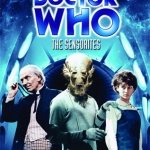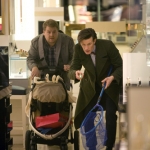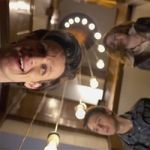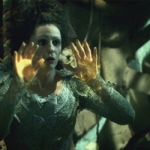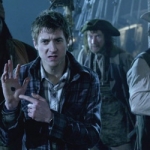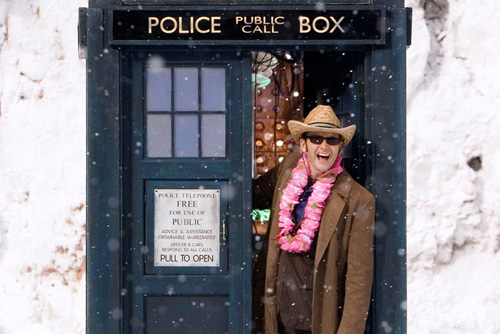
Episode: Doctor Who 4.17 – “The End of Time, Part 1”
Original Air Date: December 25, 2009 in the UK; December 26, 2009 in the US
After watching Doctor Who 4.15, “Planet of the Dead,” and 4.16, “The Waters of Mars,” it was unclear what to expect from the first portion of the two-part Doctor Who season four finale. Season four begins when the 10th Doctor (played by David Tennant) reunites with a past acquaintance, an obnoxiously loud and somewhat overbearing redhead named Donna Noble (Catherine Tate), while inadvertently uncovering an illegal breeding scheme involving the adorable baby Adipose with which many Doctor Who fans are so enamored.
By the time the events of “The End of Time, Part 1” take place, some very interesting changes take place in The Doctor’s demeanor. Choosing to travel alone in the TARDIS despite meeting a perfectly capable and well-suited possible companion in Lady Christina de Souza (Michelle Ryan) in episode 4.15, “Planet of the Dead,” The Doctor is noticeably more melancholy with fewer of his exuberant outbursts than usual.
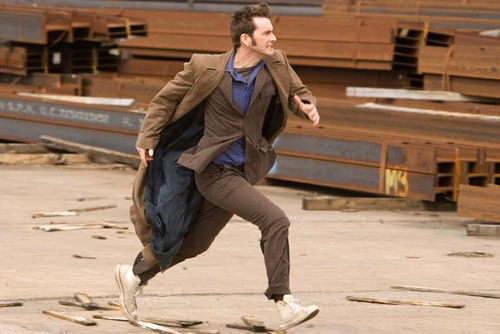
Episode 4.17, “The End of Time, Part 1,” is the first half of a climax that began building about halfway through season four with episodes like 4.09, “Silence in the Library” and 4.10, “Forest of the Dead,” in which The Doctor becomes increasingly distraught by the effects that his adventures have on his various companions. Although we see a recognizable change in The Doctor during his transition from the 9th Doctor (played by Christopher Eccleston) to the 10th Doctor (David Tennant), the essence of the character remains intact throughout the second and third series. It is in episode 4.16, “The Waters of Mars,” when we first see a drastic difference in The Doctor when he makes the decision to interfere in what he deems to be an unchangeable event with far-reaching consequences in time and space. The acceleration of his uncharacteristic actions are present in his wild attempts to save a handful of crew members from the first human settlement on Mars, and The Doctor’s unpredictable and uncharacteristic decisions continue in episode 4.17, “The End of Time, Part 1.”

In the first half of the two-part episode “The End of Time,” The Doctor returns to Earth after the Ood warn him of the return of The Master (played by John Simm) and a darkness that will herald the “end of time.” Unfortunately, The Doctor arrives too late to stop a cult dedicated to The Master from performing a ritual that brings The Master back to life. The Master’s former wife, a human named Lucy Saxon (Alexandra Moen), interrupts the ritual, however, disrupting The Master’s regeneration but leaving him with superhuman powers as well as a relentless, consuming hunger caused by the ebbing of his life force.
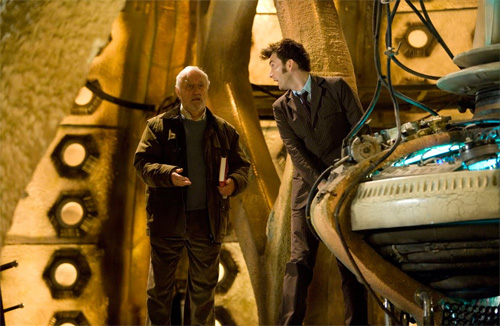
In what would appear to be an act of fate, The Doctor happens upon Donna Noble’s grandfather, Wilfred “Wilf” Mott (Bernard Cribbins). One of the episode’s most poignant lines is uttered by The Doctor as he sits in a coffee shop with Wilf not long after running into the old man. When The Doctor tells Wilf about the prophecy that foretells of his death, the old man asks him about Time Lord regeneration. “If I’m killed before regeneration then I’m dead,” The Doctor tells Wilf, “Even then… even if I change, it feels like dying. Everything I am dies. Some new man goes sauntering away… and I’m dead.” The 9th Doctor was tight-lipped about the Time Lords’ regeneration process, and The Doctor has never really expressed this type of anguish over changing or concern over life and death. While it may be upsetting for Doctor Who fans to see The Doctor so uncharacteristically distraught, it is inevitable given the prophecy and The Doctor’s increasing tendency to meddle in events in time and space. In addition, this shift in character isn’t one that will alienate viewers, especially since The Doctor’s regeneration and the accompanying slight personality alterations seem imminent.
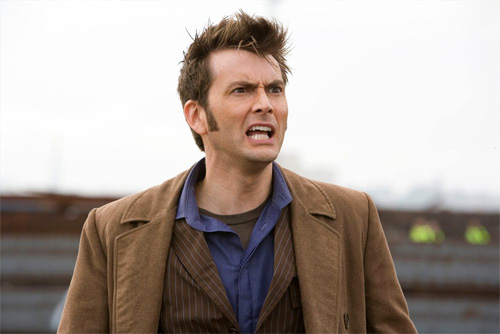
One of the most disconcerting aspects of “The End of Time, Part 1” is the way that the episode is narrated at various points. It is not until the very end of the first half of “The End of Time” that the narrator is revealed, but it is the voiceover itself that can be problematic for Doctor Who fans. This is the first episode since Russell T. Davies brought the Doctor Who series back in 2005 to have any type of voiceover or narration; thus, the portions of “The End of Time, Part 1” that feature narration feel out of place among the rest of the episode. It is unfortunate that these segments seem so out of place; constructed properly, these voiceover segments could’ve been used to develop the character of the individual speaking, but since there are no indications otherwise until the end of the episode the narrator is assumed to be a disembodied voice rather than a character in the show. Hopefully, this is a tool that will be utilized in this episode alone, although it would not be surprising if the voiceover continued in “The End of Time, Part 1I.”
Rating: 3 / 5 Stars


